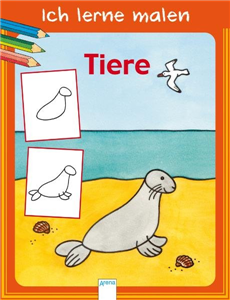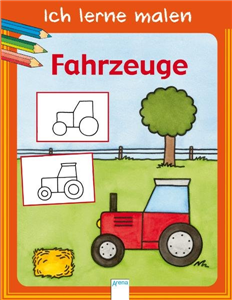Your Search Results
-
Literature Translation Institute of Korea
LTI Korea is a government-affiliated organization that aims to disseminate Korean culture and literature throughout the world in line with the government’s efforts to shape Korean literature in the world culture. website: https://www.ltikorea.or.kr/en/main.do Korean Literature Now(literary magazine): https://www.ltikorea.or.kr/en/board/kln_en/boardList.do
View Rights Portal
-
Promoted ContentThe ArtsFebruary 2019
Contemporary Korean cinema
Culture, identity and politics
by Hyangjin Lee
The first in-depth, comprehensive study of Korean cinema offering original insight into the relationships between ideology and the art of cinema from East Asian perspectives. Combines issues of contemporary Korean culture and cinematic representation of the society and people in both North and South Korea. Covers the introduction of motion pictures in 1903, Korean cinema during the Japanese colonial period (1910-45) and the development of North and South Korean cinema up to the 1990s. Introduces the works of Korea's major directors, and analyses the Korean film industry in terms of film production, distribution and reception. Based on this historical analysis, the study investigates ideological constructs in seventeen films, eight from North Korea and nine from South Korea.
-
Promoted Content2023
Textbook of Korean Medicine
Medicinal drugs and formulations
by Dr. Kenny Kuchta, Prof. Dr. Hans Wilhelm Rauwald, Hans Rausch and Dr. Raimund Royer
The consistent and evidence-based development of Korean medicine in many clinical application areas has significantly improved its international status in recent years. The basis for this development is one of the most important medical books in Korea, the „Donguibogam“, a clinical lexicon of applications compiled about 400 years ago; at that time the traditional work also enjoyed the highest recognition in China. In 2009 it was included in the „Memory of the World“ register of UNESCO. Even now after 400 years, it still serves as a manual for writing prescriptions for many physicians in Korea, and testifies that the understanding of nature and human disease patterns is still current and clinically applicable even in the modern industrialised world. This work provides ■ understanding for Korean medicine, ■ many selected medicinal formulations and their fields of application, ■ the description and evaluation of important traditional single remedies, ■ the corresponding drug monographs with information on analytical testing
-
 Trusted Partner
The ArtsMarch 2001
Trusted Partner
The ArtsMarch 2001Contemporary Korean cinema
Culture, identity and politics
by Hyangjin Lee, Mary Norris
The first in-depth, comprehensive study of Korean cinema offering original insight into the relationships between ideology and the art of cinema from East Asian perspectives. Combines issues of contemporary Korean culture and cinematic representation of the society and people in both North and South Korea. Covers the introduction of motion pictures in 1903, Korean cinema during the Japanese colonial period (1910-45) and the development of North and South Korean cinema up to the 1990s. Introduces the works of Korea's major directors, and analyses the Korean film industry in terms of film production, distribution and reception. Based on this historical analysis, the study investigates ideological constructs in seventeen films, eight from North Korea and nine from South Korea. ;
-
 Trusted Partner
Humanities & Social SciencesNovember 2013
Trusted Partner
Humanities & Social SciencesNovember 2013Britain’s Korean War
Cold War diplomacy, strategy and security 1950–53
by Thomas Hennessey
The book assesses the strains within the 'Special Relationship' between London and Washington and offers a new perspective on the limits and successes of British influence. The interaction between the main personalities on the British side - Attlee, Bevan, Morrison, Churchill and Eden - and their American counterparts - Truman, Acheson, Eisenhower and Dulles - are chronicled. By the end of the war the British were concerned that it was the Americans, rather than the Soviets, who were the greater threat to world peace. British fears concerning the Korean War were not limited to the diplomatic and military fronts - these extended to the 'Manchurian Candidate' threat posed by returning prisoners of war who had been exposed to communist indoctrination. The book is essential reading for those interested in British and US foreign policy and military strategy during the Cold War. ;
-
 Trusted Partner
August 2021
Trusted Partner
August 2021Children who will organize will learn
by YIN Shanxuan (Korean)
This book is another work of the author's "15 minutes of super finishing" to change life. It starts from the basic theories and concepts of the finishing. It uses the actual case as the guidance to tell the parents how to help the child to build. The habit and fully demonstrate the changes in children in their studies after their habits. Through this book, parents can learn the systematic finishing method, and let the sort of the child's habits, and then improve the child's learning ability and life competitiveness; those parents who have worried about children have been worried, they don't have to live again. It's gratifying, you can feel the mother's own willingness to learn.
-
 Trusted Partner
Trusted Partner
-
 Trusted Partner
Trusted Partner
-
 Trusted Partner
Trusted Partner
-
 Trusted Partner
Trusted Partner
-
 Trusted Partner
1992
Trusted Partner
1992Lern- und Denkstrategien
Analyse und Intervention
by Herausgegeben von Mandl, Heinz; Herausgegeben von Friedrich, Helmut F
-
 Trusted Partner
Trusted Partner
-
 Trusted Partner
January 2016
Trusted Partner
January 2016Schulanfang: Ich lerne lesen
Bandolo Set 54
by Barnhusen, Friederike / Illustriert von Johannsen, Bianca
-
 Trusted Partner
Trusted Partner
-
 Trusted Partner
Trusted Partner
-
 Trusted Partner
Trusted Partner
-
 Trusted Partner
Trusted Partner
-
 Trusted Partner
July 2020
Trusted Partner
July 2020Staune, lerne und entdecke
Das weiß ich schon über unser Essen
by Schmitz, Hanna / Illustriert von Weidenbach, Bille
-
 Trusted Partner
Trusted Partner
-
 Trusted Partner
1984
Trusted Partner
1984Lern-Wege religiöser Erziehung
Historische, systematische und praktische Orientierung für eine Theorie religiösen Lernens
by Heimbrock, Hans G
-
 Trusted Partner
November 2012
Trusted Partner
November 2012»ich lerne: gläser + tassen spülen«
Briefe 1923–1956
by Bertolt Brecht, Helene Weigel, Erdmut Wizisla, Wolfgang Jeske
Erst seit jüngstem gehört die »Brecht- Sammlung Victor N. Cohen« dem Brecht-Archiv, einschließlich zahlreicher unbekannter Briefe, die Brecht während seines amerikanischen Exils Mitte der vierziger Jahre von der Ostküste der USA an Helene Weigel, mit der er seit 1929 verheiratet war, nach Kalifornien geschickt hat. In einer ersten Bestandsaufnahme zum Jahreswechsel 1923/24 schreibt Brecht an und über die junge Schauspielerin: »H W / (zu deutsch: Havary)«; von ihr getrennt herrschen bei ihm »Starke Langeweile / 90 % Nikotin / 10 % Grammophon«. Immer wieder bestürmt er sie: Fragen nach einem Zimmer oder einer Wohnung, nach Büchern und Artikeln oder nach Autopreisen und der Wiederbeschaffung von verlorenen Papieren; er erkundigt sich nach ihren Rollen und Auftritten und nach der Resonanz von Publikum und Kritik; er berichtet über die Arbeitan seinen eigenen Stücken oder darüber, daß er »mit viel Nikotin wenige Sonette hergestellt« habe. Nach der Flucht aus Deutschland Anfang 1933 geht es immer wieder um Orte, an denen Brecht weiterarbeiten kann, um die Mühsale einer Familie im Exil, um zwei Kinder, die ihre Muttersprache nur noch zu Hause hören, und um die Nöte einer Schauspielerin, die fünfzehn Jahre lang ohne Bühne ist. Und deren Briefen wir hier zum ersten Mal begegnen.

































